Businesses with a structured sales process achieve higher revenue as it provides a consistent framework for the sales team to prioritize efforts on leads likely to convert to customers. The sales pipeline management system seamlessly proceeds with each step of the sales cycle. However, with the evolution of AI, running a business with automation strategies is necessary to boost sales performance. One such powerful tool is Salesforce Einstein AI, which analyzes data-driven insights to enhance the sales pipeline system for your business.
With AI, you can bring more visibility to your Sales process thereby improving forecasting, making accurate predictions, and tracking the progress of your Sales team. By implementing Einstein AI in the Sales Cloud, you can capture and analyze customer data based on past interactions such as purchase history details, emails, and website visits. The right sales data insights save time for your sales reps to improve efficiency and respond to potential customers immediately.
In this blog, we will discuss how using Salesforce Einstein AI can enhance sales pipelines across industries and empower your sales team to make data-driven decisions with confidence.
Why use Salesforce Einstein AI for Sales Pipeline Management?
Einstein AI integration into your existing Sales Cloud environment enhances different steps of the sales pipeline. Sales reps at each stage collect data insights and make predictions for efficient decision-making.
Here’s how Salesforce Einstein AI helps in the sales pipeline management system:
- Lead scoring: Einstein AI generates insights from your past converted leads. AI identifies patterns between past and new leads allowing it to prioritize leads who are more likely to convert. This process optimizes Sales efficiency by focusing on probable prospects thus increasing efficiency and driving revenue.
- Opportunity Insights: With the right implementation of Einstein AI, you can analyze historical sales data to predict the likelihood of an opportunity closing. AI assigns a probability score, allowing reps to prioritize leads based on their chance of success. Useful AI analytical insights inside the sales pipeline management system help sales reps prioritize leads effectively and make informed decisions.
- Predictive Forecasting: Einstein AI collects sales data from different stages of your sales pipeline system. AI analyzes this data to identify factors that correlate with successful sales deals such as sales rep activities, past customer behavior, and preferences. Based on these historical data patterns, Einstein AI creates forecasts about the future performance of your current sales pipeline by estimating the likelihood of each sales deal closing.
- Automated Email Responses: Einstein AI tracks past conversations between sales reps and customers to prioritize customers based on their engagement level. This automation tool then generates personalized email responses based on customer interaction and their preferences.
- Recommendation or Einstein’s Next Best Actions: Einstein AI generates meaningful conversations to help sales reps proceed with target customers for higher conversion rates. Advanced Einstein recommendations strengthen customer relationships and close more deals.
- Churn Prediction: By leveraging advanced analytics, Salesforce Einstein collects data, identifies at-risk customers, and segments them based on past interactions and demographics. Sales professionals utilize this data to send personalized emails, promotions, and discounts to different customer segments to reduce churn and retain valuable customers.
- Customer Satisfaction: AI analyzes customer data and identifies queries. Armed with data insights, businesses can resolve queries on time with automated responses and timely follow-ups to improve customer satisfaction.
Benefits of Integrating Einstein AI Into The Sales Pipeline Management System
Integrating Einstein AI into your sales pipeline management system can offer several benefits that enhance sales efficiency and boost conversions.
Here are 3 key benefits:
1. Enhanced Pipeline Visibility and Forecasting
- Predictive Analytics: To find sales trends and forecast the chance of conversion rates, Einstein AI examines enormous volumes of previous sales data. Sales managers may more efficiently deploy resources and give priority to high-potential opportunities thanks to predictive analytics.
- Opportunity Scoring: Based on a lead opportunity’s potential, Einstein AI rates it from low to high. Sales representatives concentrate on the most promising leads to make informed decisions based on the segmentation of high-potential leads.
2. Improves Sales Rep Productivity
- Task Automation: Einstein AI automates repetitive tasks like scheduling follow-ups and data entry, which helps sales reps invest their valuable time to focus on building relationships and closing deals.
- Actionable Insights: By analyzing past customer data and interactions, Einstein AI offers real-time insights that empower sales reps to personalize their communication to each customer’s needs.
3. Smarter Sales Strategies
- Identifying At-Risk Customers: Einstein analyzes the sales pipeline data to identify patterns that might indicate a deal is at risk. The reason could be a sudden drop in email responses or proposals. Tracking at-risk customers beforehand helps sales reps take strategic actions to navigate the sales process more effectively.
- Deal Insights: Salesforce Einstein Forecasting can analyze historical sales data, existing pipeline opportunities, and sales rep activities to predict sales performance. By leveraging the deal insights, Einstein AI identifies potential at-risk customers and suggests tailor-made recommendations to sales reps for addressing customer concerns or offering alternative solutions. Einstein forecasting enhances data-driven decision-making for sales reps to develop effective sales strategies and increases the chances of closing at-risk deals.
Maximizing Sales Performance with Einstein AI: A Step-by-Step Sales Pipeline Management Guide
Einstein AI enhances sales performance with a stepwise approach to sales pipeline management to optimize sales efficiency with data insights.
Let us walk you through the step-by-step detailed guide on pipeline management with Einstein AI: –
1. Data Preparation for Einstein AI
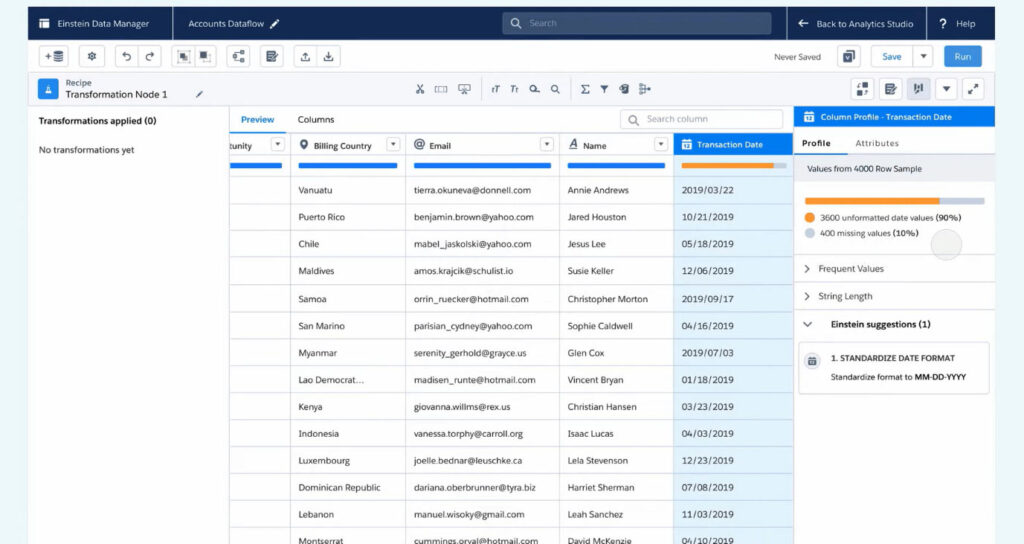
- Data Collection and Integration: Gather historical data from various sources such as marketing platforms, CRM systems, and external databases and integrate the entire data into Salesforce for analysis.
- Data Cleansing and Formatting: Clean up the data to eliminate duplicates and inconsistent information. Structuring data appropriately for precise analysis and interpretation.
- Data Security and Privacy Considerations: Adhere to data security and privacy regulations and implement measures to protect sensitive customer information throughout the data preparation.
2. Leveraging Einstein AI for Sales Forecasting
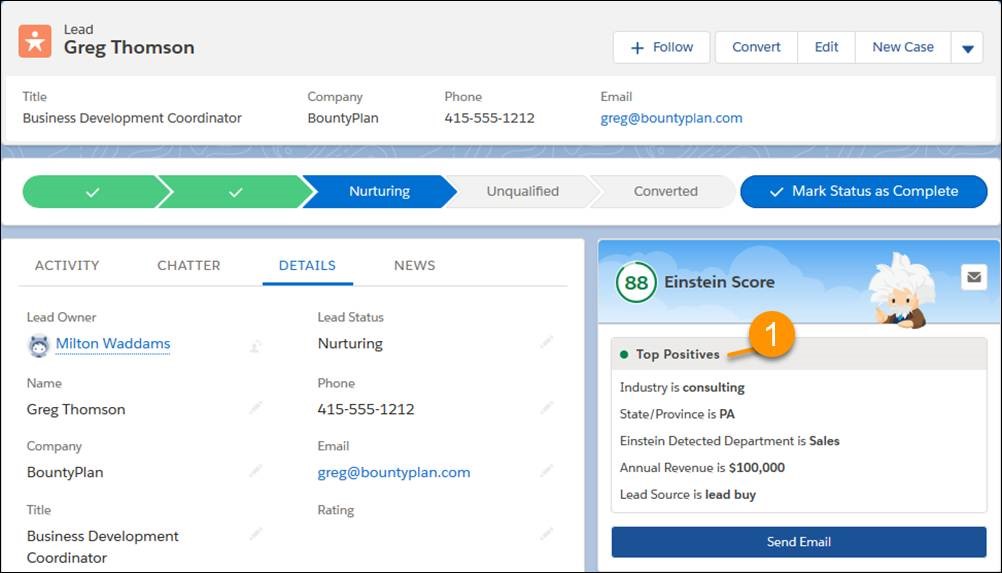
- Predictive Lead Scoring: Utilize Einstein AI predictive capabilities to score leads based on their likelihood of conversion. Give high-scoring leads priority for focused sales efforts.
- Opportunity Insights and Forecasting: Gain insights into individual sales opportunities using Einstein AI. Make precise predictions about sales performance by using these insights.
- Forecast Accuracy Improvement Techniques: Continuously refine AI models to improve forecast accuracy. Add additional data sources and adjust model parameters accordingly.
3. Enhancing Lead Management with Einstein AI
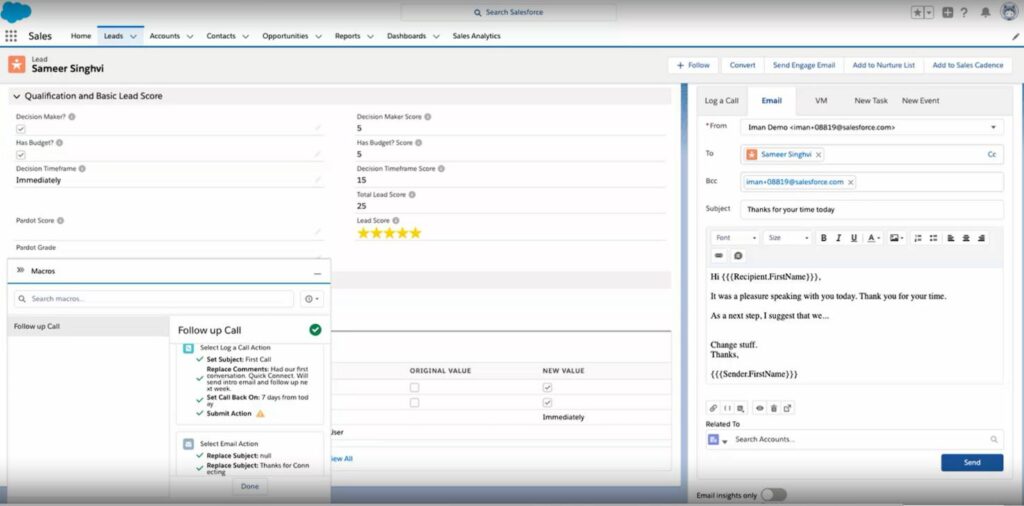
- Lead Prioritization and Routing: Automatically prioritize and route leads to the most appropriate sales reps based on predefined criteria and AI-driven insights.
- Lead Conversion Optimization: Using historical data, Einstein AI determines the factors influencing lead conversion. Develop plans to improve the conversion process and overall sales performance.
- Lead Nurturing Strategies: Leverage Einstein AI to develop personalized lead nurturing campaigns tailored to individual prospect preferences and behaviors.
4. Streamlining Sales Processes with Einstein AI
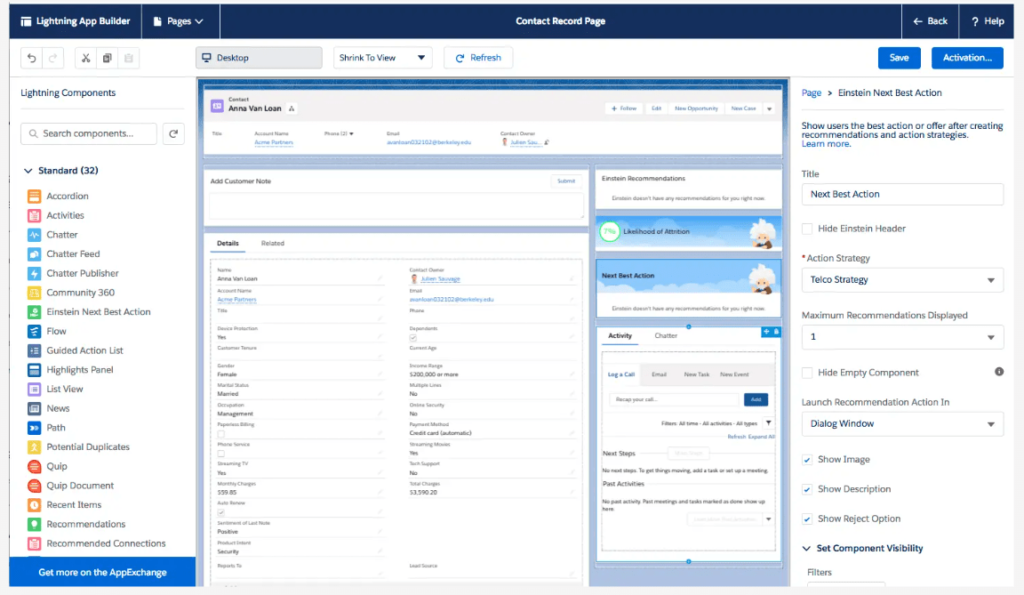
- Automated Task Assignment: Automate routine sales tasks such as follow-ups and data entry using Einstein AI, allowing sales reps to focus more on high-priority tasks.
- Next Best Action Recommendations: Provide sales reps with AI-driven recommendations with Einstein generative AI to communicate with prospects and customers. Optimize sales interactions and improve outcomes.
- Process Optimization through AI Insights: Use AI insights to find inefficiencies in the sales process and implement process enhancements to achieve operational efficiency and boost productivity.
5. Personalization and Customer Engagement
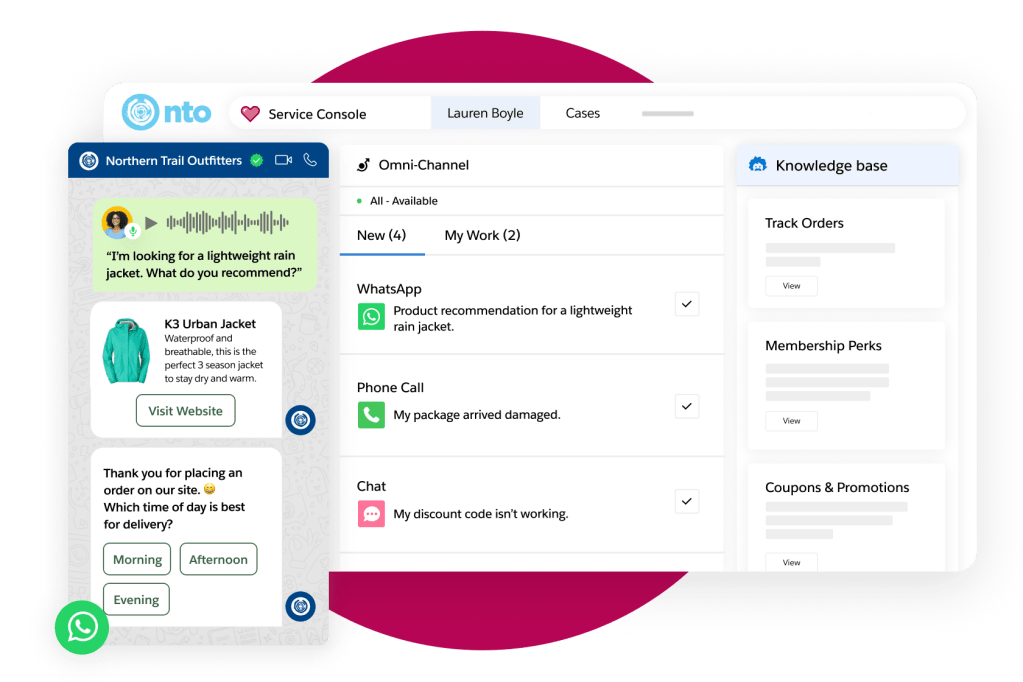
- AI-driven Customer Insights: Gain deep insights into customer preferences, behaviors, and buying patterns using Einstein AI. Personalize sales and marketing strategies to enhance customer engagement.
- Dynamic Content Recommendations: Recommend relevant content and resources to prospects based on their interests and interactions. Deliver personalized experiences that resonate with everyone.
- Personalized Communication Strategies: Implementing Einstein AI helps you to send personalized messages to close deals faster. By utilizing AI insights, sales reps craft compelling messages and drive engagement.
6. Monitoring and Analysis with Einstein AI
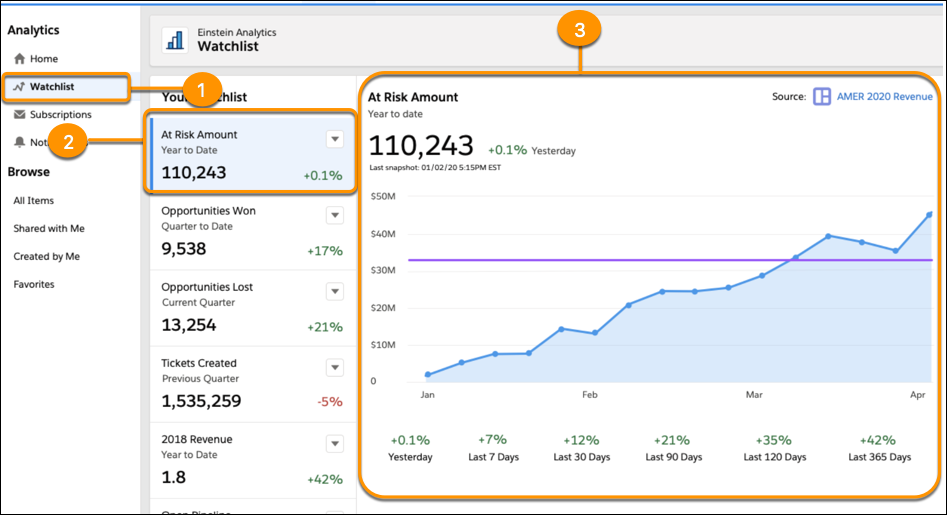
- Real-time Performance Monitoring: Monitor sales performance in real-time using AI-powered dashboards and analytics tools. Identify trends and patterns as they emerge and take proactive measures to address issues.
- AI-powered Analytics Dashboards: Access actionable insights and recommendations through AI-powered analytics dashboards. Visualize key metrics and track progress toward sales goals.
- Continuous Improvement through Data Analysis: Analyze sales data regularly to identify opportunities for improvement. Use AI-driven insights to refine strategies, optimize processes, and drive continuous improvement.
AblyPro’s Role in Salesforce Einstein Implementation and Managed Services
Implementing Einstein AI without strategic guidance can be challenging for enterprises because enterprises often struggle with data inconsistencies and data silos that lead to inaccurate predictions. Customizing Salesforce Einstein based on specific needs requires expertise in AI concepts and Salesforce. Many enterprises lack the in-house talent to handle this effectively.
Having a team of experts to implement Salesforce Einstein AI in your existing sales pipeline management can boost your sales efficiency. With AblyPro as your trusted partner, we address these challenges and help enterprises implement and manage Einstein AI to enhance your sales processes. Our team of experts understands your unique business challenges by conducting a thorough needs assessment. By analyzing your specific goals, data landscape, and processes, we offer you tailored business solutions that perfectly align with your business needs. We thoroughly configure data pipelines and monitor their performances to ensure that Einstein AI has access to clean and reliable sales information for informed decision-making. Our commitment goes beyond the initial implementation. We also offer ongoing support to ensure your team can leverage Einstein effectively to address any future challenges.
FAQs
Ans: The sales pipeline stages are a representation of a customer’s buying journey that starts from discovering the product or service to progressing through the sales pipeline. The seven key stages include:
1. Prospecting: The initial step begins with your target audience discovering the product or service of your business. In the prospecting stage, sales reps identify the potential target customer and qualify them for the consideration stage.
2. Lead Qualification: By moving forward into the sales pipeline management system to attract your target customers sales reps send e-books, webinars, and case studies. This stage determines whether your target customer is interested in your services or products.
3. Demo or meeting: Moreover, the sales rep engages with the qualified lead by conducting a meeting to provide relevant information about your service.
4. Proposal: After the demo or meeting, the salesperson may submit a proposal to the prospect outlining the specifics of the offer, including pricing, terms, and any additional details relevant to the purchase.
5. Negotiation and commitment: This stage involves negotiation to come to a mutual agreement to adjust pricing and contract terms.
6. Opportunity won: Once the target customer commits to making a purchase, the opportunity is considered won and considered as lead conversion.
7. Post-purchase: The final stage involves post-purchase activities, such as onboarding the customer, providing support, and ensuring their satisfaction with the product or service. It’s essential for building long-term relationships and fostering customer loyalty.
Ans: Sales pipeline management in Salesforce is a clear representation of the different stages of the sales process. Sales pipeline management helps you to identify potential lead opportunities and manage the sales pipeline effectively.
Here’s how Salesforce sales pipeline management works:
1. Lead Generation: Salesforce captures leads from various sources like email, web forms, and social media. Leads are segmented based on the potential of conversion rates.
2. Lead Qualification: By assessing the potential of a lead by analyzing their interest in your service or business. Sales rep categorized them based on their likelihood of conversion.
3. Proposal: This stage includes crafting a tailored proposal that aligns with your prospect’s needs and interests.
4. Negotiation: This stage includes finalizing the contract terms such as pricing and service levels. Moreover, the sales rep offers customized features as per the requirements of potential customers.
5. Closure: This stage is the main goal in the sales pipeline management. The successful conversion of a potential lead into a customer represents that a deal is successfully closed.
Ans: Enterprises use Salesforce to manage their sales pipeline to streamline the sales process, improve efficiency, and boost revenue. Here are some key functionalities such as:
1. Visualization and Tracking Sales Process: Salesforce allows enterprises to define different stages in their sales pipeline such as Lead Qualification, Proposal, Negotiation, and Closure. Each target customer is assigned a stage to give the sales team a clear view of ensuring that the deal is progressing smoothly.
2. Streamlined Sales Workflow and Automation: Salesforce automates repetitive tasks like lead assignment, data entry, creating opportunities, and sending follow-up emails. This helps sales reps to focus more on building relationships with prospects and closing deals.
3.Data Driven Insights and Reporting: Salesforce offers a set of analytics and reporting tools that provide sales data insights into pipeline performance. At each sales pipeline stage, you can identify trends and measure the effectiveness of your sales efforts.
Author

Global COO, AblyPro

For 20 years, Neeraj has worked alongside a multitalented team to help associations and nonprofits drive digital transformation within their organization, enabling them to be more innovative, agile, and donor/member-centric. As AblyPro’s Global COO, he leads an internal task force that shares lessons learned, best practices, and practical applications that specifically relate to associations and nonprofits. With 300+ developers by his side, Neeraj provides clients with the resources and capacity to power up their teams.





